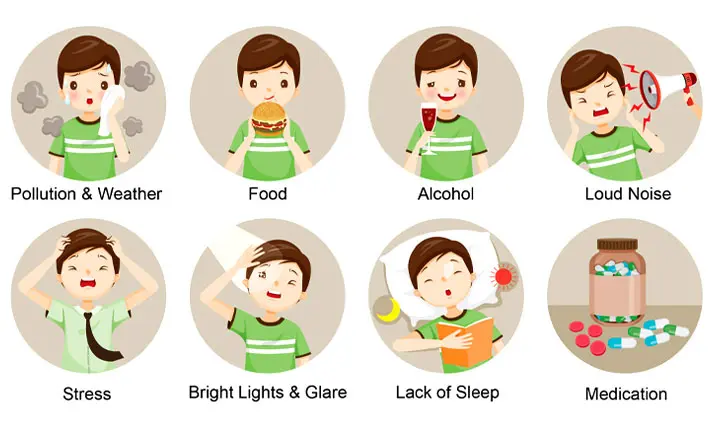Working from home has become the new normal for many of us in Singapore. Over the past two years, such arrangements have become default, with many workplaces choosing to keep their employees safe by letting them work remotely. While being away from the office does have its perks, for some of us it can, quite literally, be a headache! Read on to find out why, and when you should do something about the pain in your head.
Headaches vs migraines: Know the difference
Most of the time, headaches are not a sign that something is wrong. They are a common issue that many of us would have experienced at some point in our lives. Headaches are characterised by pain in the head or face, with sensations ranging from throbbing to constant, sharp or dull. Before you get overly concerned, understand the difference between a headache and a migraine – the former typically isn’t a cause for concern, but the latter is usually more serious.
"A common headache or tension headache usually occurs on both sides of head, with mild to moderate intensity," explains Dr Tauqeer Ahmad, a neurologist at Gleneagles Hospital.
On the other hand, "Migraines usually occur on one side of the head with nausea and vomiting, precipitated by loud noise or bright light. It is more common in young patients, and females get it more than males. A migraine is episodic in nature where each attack can last for hours to days."
Common triggers, and why working from home may be the cause
Migraines can be caused by numerous possible triggers, such as bright light, loud sounds, hormonal changes, lack of sleep, fasting, and certain types of food. However, in recent times, doctors have been noticing migraines triggered by lifestyle changes and habits – specifically, those brought about by work-from-home arrangements.
"In my personal experience during the period of pandemic and lockdown, I have seen many cases of migraines and headaches due to lifestyle changes or long hours of working from home," says Dr Tauqeer.
For instance, working from home has required some of us to put in longer than usual hours in front of a bright computer screen, leading to migraine episodes associated with high levels of screen time. Think of the hours spent answering emails, listening to virtual Teams or Zoom meetings, catching up on the latest episodes of our favourite dramas, or gaming online with friends.
"Long hours sitting in one position causes neck and back muscle spasms, which can also trigger a migraine," elaborates Dr Tauqeer.
This, together with factors such as late nights in front of the computer, inadequate sleep and stress at home, could be the culprit behind that pain in your head.
Diagnosing migraines and when to be concerned
Getting a migraine, while undesirable, may not be cause for alarm.
However, signs that it may require you to seek medical attention include:
- A change in the pattern of headache
- Experiencing a different kind of headache
- Pain that is accompanied by numbness or weakness
- A headache does not ease when regular medication is taken
- More serious symptoms of migraine, which can include slurred speech, pain in the ear or eye, seizures, or even loss of consciousness
If you decide to see a doctor for your migraine, be prepared to undergo some investigations in order to identify the underlying cause, which may include:
- Routine blood tests
- A magnetic resonance imaging (MRI) or computed tomography (CT) scan to rule out serious causes of headache such as an aneurysm or brain tumour
- Eye examination (refraction test)
Treatment and management of migraines
Fortunately, migraines are usually treatable.
Dr Tauqeer affirms this: "Many patients in my practice have fully recovered and no longer need follow-up treatment."
He explains that migraines can be treated with two groups of medication – the Prophylactic group, which prevents attacks and is taken daily or monthly; or the Abortive group, where medication is taken as and when needed during or before migraine attacks.
There are also non-medical treatment methods, which hinge on a crucial question: figuring out what your triggers are.
For example, is your migraine triggered by bad posture and long hours? If so, you can find ways to manage your schedule, or make time for breaks away from your workspace.
You can also try self-care techniques such as applying heat or cold packs to your head, stretching, massaging your head or back, meditating, or simply taking a walk. If you feel that your issue stems from light sensitivity, adjust your device's screen brightness, and keep the lighting in your room balanced with the brightness of the monitor to reduce eye strain.
In short, while headaches and migraines don't usually pose a huge threat to your health, do not ignore warning signs or brush away any lingering worries. Should you feel uncomfortable or worried about any symptoms that you are experiencing, do not hesitate to seek medical attention from a doctor.














